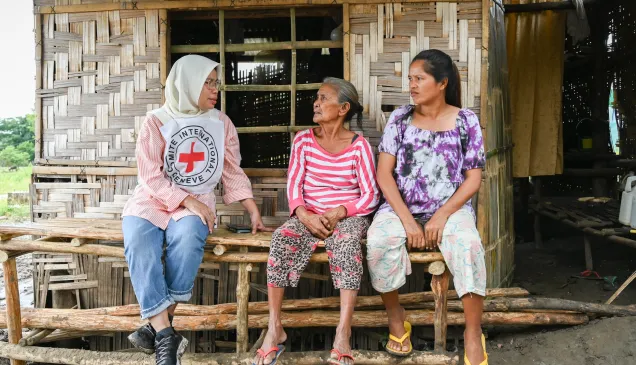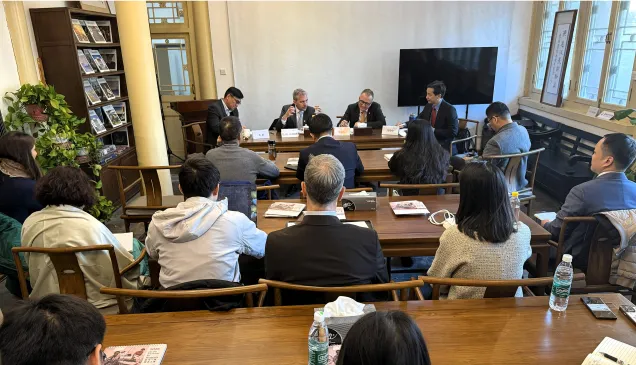Statement by the ICRC, meeting of States Parties to the Convention on the Prohibition of the Development, Production and Stockpiling of Bacteriological (Biological) and Toxin Weapons and on their Destruction, 9-13 December 2013, Geneva.
Like many States, the ICRC is concerned about the potential for hostile use of developments in the life sciences as biological weapons. The ICRC supports and has called for efforts to strengthen the full range of preventive measures for reducing the likelihood of misuse.
There are real risks of new biotechnologies – including synthetic biology – being misused; they underscore the need to achieve universal adherence to and implementation of the Biological Weapons Convention.
Cameroon, Nauru, Guyana and Malawi joined the treaty in 2013 and the ICRC welcomes this continued progress in universalization. However, we urge all 26 States not yet party to ratify or accede without delay. There can be no justification for any State to remain outside a treaty that aims ‘for the sake of all mankind, to exclude completely the possibility of biological agents and toxins being used as weapons.’
.. all pertinent sections of the scientific community and of industry must be involved if preventive efforts are to be effective.
But joining the treaty is just the first step. A core responsibility of each State Party is to ensure that its domestic laws reflect its obligations under the Convention. As part of effective national implementation, States Parties must, at a minimum, ensure that national legislation provides penal sanctions, and the means to enforce them, for any activity prohibited by the Convention. The ICRC’s Advisory Service, in Geneva and in the field, remains available to provide States with assistance and advice on national implementing measures.
Achieving the objective of the treaty – to prevent the use of biological weapons – also requires those engaging in activities at risk of misuse to respect its provisions. It is crucial that scientists closely involved with relevant developments in science and technology are aware of the Convention’s prohibitions and of their responsibility for helping to prevent the misuse of their research. States Parties must therefore increase their efforts to raise awareness among life scientists. As the ICRC emphasized in its Biotechnology, Weapons and Humanity initiative, launched in 2002, all pertinent sections of the scientific community and of industry must be involved if preventive efforts are to be effective.
There also remains the need for a mechanism to ensure a structured review of developments in science and technology; it would address developments with the most significant implications – positive and negative - for the implementation of the treaty’s provisions. Such a mechanism could, for example, take the form of a permanent working group reporting to the annual Meeting of States Parties.
As some States have pointed out, interaction between efforts to uphold and strengthen the prohibition of biological weapons and those undertaken for the Chemical Weapons Convention must continue.
The ICRC has drawn attention to the risks posed by the use of toxic chemicals other than riot control agents as weapons in law enforcement – so called “incapacitating chemical agents.” On 6 February 2013, after years of in-depth consultations with government and independent experts, the ICRC called on all States to ensure that riot control agents are the only toxic chemicals used as weapons for law enforcement purposes. The close convergence of chemistry and biology – and the overlap between the types of chemical or biological agents that could be misused as weapons – means that this call is also supportive of the object and purpose of the Biological Weapons Convention.
Returning to the inter-sessional process here in Geneva, it is encouraging that various ideas and proposals are being put forward as ways of increasing transparency and confidence among States Parties with regard to compliance with the treaty, such as a compliance review mechanism, a peer review process for compliance, and improved confidence building measures. We hope the foundations can be laid now to enable real progress on means to monitor and assess compliance at the 8th Review Conference in 2016.
The ICRC urges States Parties to focus on translating the common understandings agreed by the inter-sessional process into effective actions that will reinforce the prohibition of biological weapons while adapting preventive efforts to the contemporary scientific landscape.




